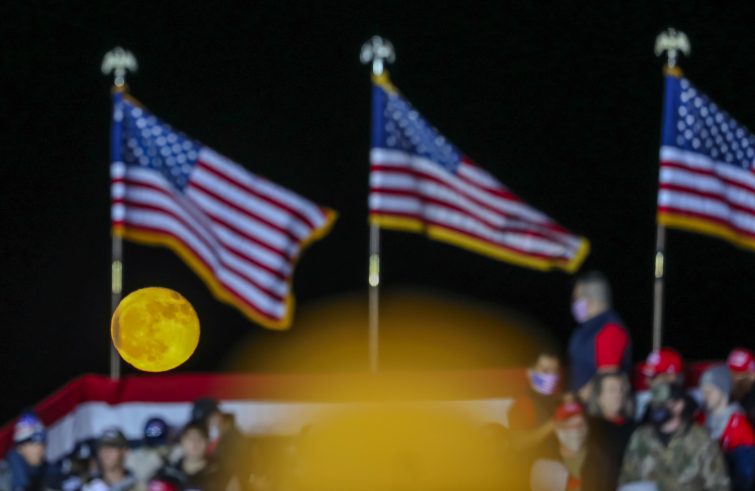
The 2020 elections will go down in history for many reasons, starting with the coronavirus, to include polarization, social media censorship, militias, venom debates. But they will also be remembered as the most expensive election campaign in US history, with $14 billion spent on the White House race and to secure control of Senate and House.
The presidential race alone will have cost $6.6 billion, more than was ever spent before.
For the first time small donors are playing an increasingly important role in campaign contributions, although huge sums of money from billionaires and wealthy businessmen continue pouring in. The figures were released by the Centre for Responsive Politics. Most of that money – $ 1.8 billion- went to TV Ad spending, an enormous amount considering that the total cost of the 2016 presidential campaign, including the primaries, amounted to $ 2.4 billion. Democratic candidates and allied groups spent $5.5 billion, compared with $3.8 billion of Republican spending. Small donors with roughly $200 each provided 22% of campaign spending, supporting Senate candidates and Joe Biden in particular. The nonprofit Democratic online donation platform, ActBlue, has processed over $3.3 billion so far, while its rival, for-profit platform, WinRed, raised $1.2 billion since its creation in 2019, indicating that Republicans are less accustomed to small donations. Casino tycoon Sheldon Adelson and his wife, are by far by far the Republican Party’s biggest donors with $183 million for the party’s candidates. Michael Bloomberg remains the largest Democratic donor with $107 million. Trump’s donors include real estate, finance and oil companies. Among them figure, inter alia, the husband and relatives of U.S. Secretary of Education Betsy Devos and the owner of the New York Stock Exchange. Biden’s donors include investment firms, law firms and corporations and individuals from the academic world. Celebrities include Steven Spielberg and the wife and children of media mogul Rupert Murdoch. Additional major new donors came from Silicon Valley, where high-tech wealth has created an entirely new class of potential supporters. Facebook co-founder Dustin Moskovitz likewise put more than $24 million into Future Forward, a Democratic support group that broadcasts anti-Trump ads.
Many supporters belong to so-called “dark money” groups -i.e. groups that do not disclose the names of the donors, accounting for 70% of the funding provided to this election campaign.
Many contributions ultimately represent “dark money”, i.e. untraceable donations by anonymous donors who are contributing to the campaign, accounting for 70% of all donations. This phenomenon involves Democrats and Republicans alike. One “dark money” Democratic group, the Sixteen Thirty Fund, has reported more than $51 million in donations, while the major dark money nonprofit group One Nation, has funded the Republican majority leaders with over $62 million. Wall Street remains the main donor of the US election campaign, totalling more than $255 million from securities and investments that favoured Democrats with $161.7 million – compared to $94.5 million to Republicans.
All figures have been processed by the Federal Election Commission.












